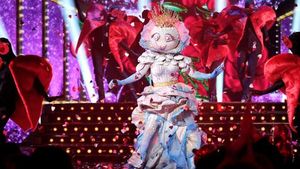Usha Vance has made history as the first Indian-American and Hindu Second Lady of the United States, marking a significant milestone for representation within the U.S. political sphere.
Born Usha Bala Chilukuri to Telugu Indian immigrants Radhakrishna and Lakshmi Chilukuri, Usha’s early life was steeped in academia. Her parents, who traveled to the United States in the late 1970s, both dedicated their energies to education, setting the groundwork for their daughters’ future successes. Usha, who has one sister, Shreya, excelled early on and attended Mt. Carmel High School before pursuing higher education.
Usha’s academic diligence culminated at Yale University, where she graduated summa cum laude with a Bachelor of Arts degree in history in 2007. She continued there, obtaining her law doctorate in 2013. It was during this time at Yale Law School she met her future husband, JD Vance. They were introduced by their professor Amy Chua, who recognized the chemistry between the two students.
JD Vance would later describe Usha’s influence as pivotal in his 2016 memoir, Hillbilly Elegy. Their compelling story was brought to the screen by Ron Howard, where Usha was portrayed by actress Freida Pinto. The couple shares three children: seven-year-old Ewan Blaine, four-year-old Vivek, and three-year-old Mirabel Rose.
Before the inauguration of former President Donald Trump, Usha Vance's faith became widely searched and discussed, highlighting her status as the first Hindu Second Lady. She told Fox News about the playful dynamics of her family life now under Secret Service protection, stating, "We have code names now. Our kids had a lot of fun with this." The family, located primarily around Cincinnati, has ingrained themselves culturally and socially within their community.
Usha Vance’s groundbreaking position not only amplifies the voices of the Indian-American community but also generates visibility for Hinduism within the American political system. Her appointment resonates with numerous individuals feeling underrepresented, showing them the potential for leadership. Usha’s story is not just about personal success but reflects broader themes of diversity and inclusion.
With her qualifications and unique backgrounds, Usha Vance stands as a powerful embodiment of modern America’s melting pot identity—reflecting the hopes and aspirations of many immigrants and their descendants striving for recognition and equality.
Through her achievements, Usha Vance’s role as Second Lady serves as both inspiration and validation for young Indian-Americans and other minorities, encouraging them to step forward and make their mark within the political dialogues of society.
Her entrance to the public eye signifies the gradual shift toward broader inclusivity, making Usha Vance not just a notable figure within her family, but also a beacon of hope for many across the nation.



